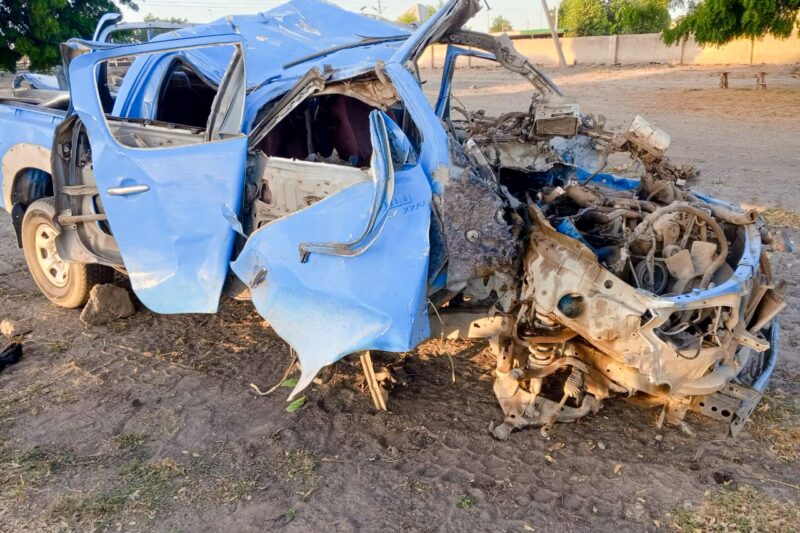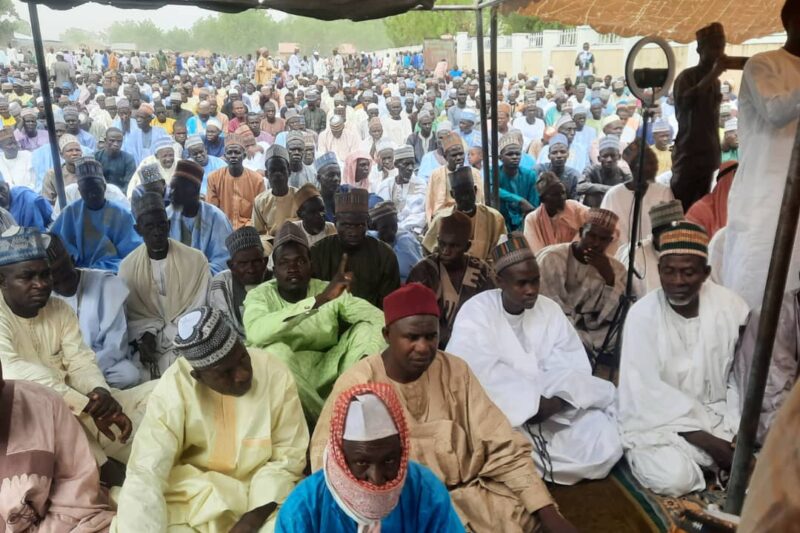The message was loud and clear: The culture of silence about gender-based violence (GBV), which has become a scourge in northeast Nigeria, must end.
“Women’s voices must be heard,” so said the Women-Led Network of Civil Society Organisations (CSOs) in Yobe State.
“We have had enough of violence and abuse against women and girls. It is a human rights violation, often with devastating immediate and long-term consequences, even death,” said Maryam Aje, president of the CSOs.
She said it was time for the Yobe State government to implement the Violence Against Persons (Prohibition) Act – known as the VAPP law.
The CSOs were demanding that the state government to implement VAPP as soon as possible. It had been passed by the Yobe State House of Assembly but was awaiting the assent of the State Executive Governor.
The law applied to the Federal capital Territory (FCT), Abuja, but it had to be adopted across the rest of Nigeria’s states as part of their own laws through their state legislature and government.
Aje told RNI reporter Sheriff Bura that the law was essential because of the alarming escalation in the number of abuse cases against women and girls.
She said women and girls faced unequal treatment in public and in private. The network demanded the end to all forms of GBV against women and girls – and more especially for the women and girls in internally displaced camps, who had already been forced to flee from their homes, and who had been injured and tortured in the ongoing insurgency.
UN Women said women and girls in IDP camps had been exposed to widespread and severe forms of sexual violence following their displacement and they continued to be at a disproportionate risk of GBV, including domestic violence, forced/child marriage, and exploitation and trafficking.
Women and girls were mostly targeted with rape, abduction, and sexual slavery, and were forced to carry person-borne improvised explosive devices, while men and boys were mostly targeted for recruitment by non-state armed groups and were at higher risk of being killed and arbitrarily detained.
It said GBV, including sexual violence and forced child marriages, continued to be reported and were attributed to the conflict, insecurity and poor living conditions in IDP camps and informal settlements. Girls were particularly at risk of child marriage, sexual exploitation, abuse and neglect.
UN Women said violence against women was a human rights violation, with often devastating immediate and long-term consequences. Women around the world experience it in various forms, settings, levels of frequency and severity, at the hands of intimate partners, family members or others.
Women’s feelings of insecurity restricted their lives in myriad ways, hampering their health, as well as their civil, political, economic and social rights.
The UN agency said women’s safety was the gateway to basic health, living standards and empowerment, and a necessary condition to achieve gender equality.
Aje said she agreed with the finding by UN Women, which had shown that all types of violence against women and girls, particularly domestic violence, had intensified when the COVID-19 pandemic started.
“During the lockdowns women and girls were kept hidden from the public. There was no way to let people on the outside know about their constant abuse. Loss of money because of the loss of jobs had contributed to the attacks by spouses, intimate partners and even family members,” said Aje.
UN Women said that as COVID-19 cases continued to strain health services, essential services, such as domestic violence shelters and helplines, had reached capacity.
“More needs to be done to prioritise addressing violence against women in COVID-19 response and recovery efforts,” it said.
Aje called on the community, traditional and religious leaders to support the network by creating awareness in society about abuse against women.
“It’s the only way to reduce and eliminate all forms of gender violence in communities,” she said. “Most often community members do not report cases of GBV. This culture of silence needs to come to an end.”
Aje emphasised the importance of reporting acts of violence against women and girls, saying that once men were jailed or punished for these acts the number of attacks would at least reduce.
Global Citizen said the VAPP law was designed to tackle “all forms of violence against persons in private and public life” and provide “maximum protection and effective remedies for the victims and the punishment of offenders”.
The law prohibited female circumcision or genital mutilation. It also prohibited abandonment of spouse, children and other dependents without sustenance. It prohibited battery and harmful traditional practices.
It said the VAPP law covered various forms of violence but particularly honed in on gender and sexual-based violence.
“It also redefines rape and is the first Nigerian law to recognise that rape can involve male victims,” it said.
Because Nigeria was home to many cultural practices that were particularly harmful to women and girls, such as female genital mutilation and circumcision, denial of inheritance and succession rights, and forced marriage, the VAPP law aimed to provide a legal framework to protect victims of these practices.
Amnesty International’s Osai Ojigho told CNN in June 2020: “No matter where you are in Nigeria, in the north or south, in the city or rural, Christian or Muslim, every woman and girl is at risk of rape. Nowhere is safe or immune to this violent crime against women.”








